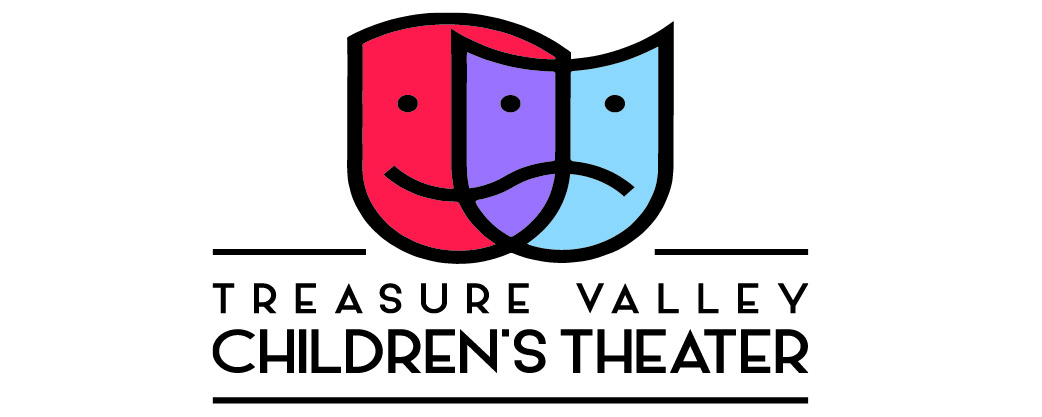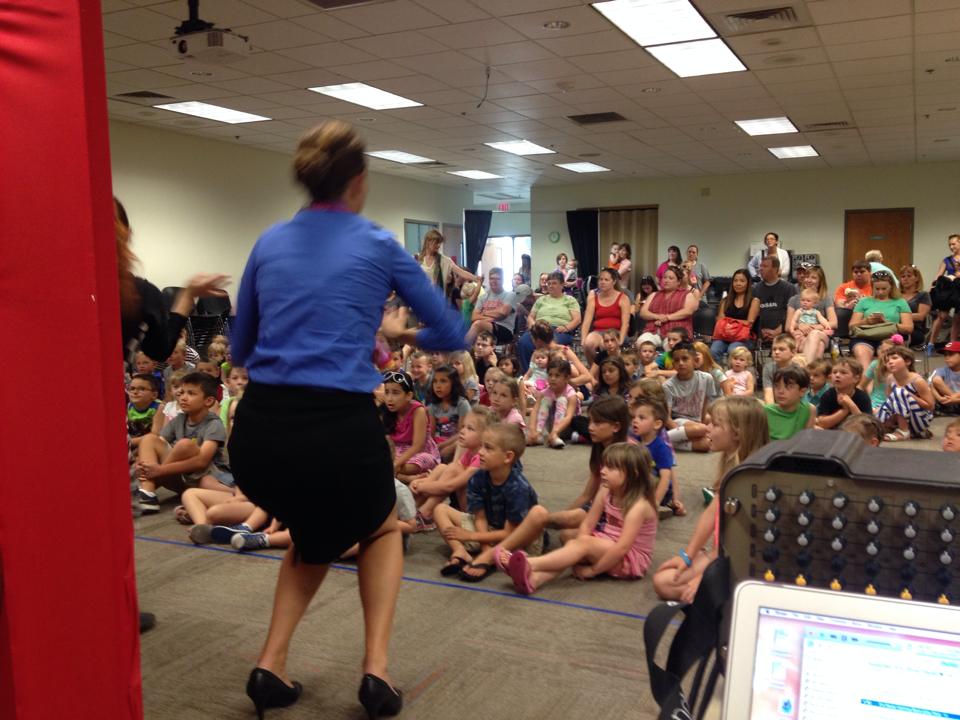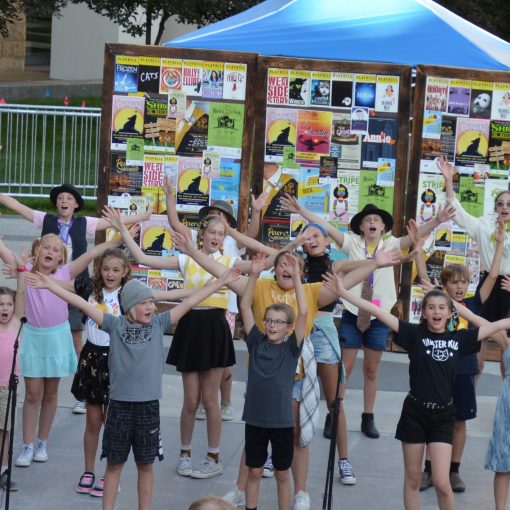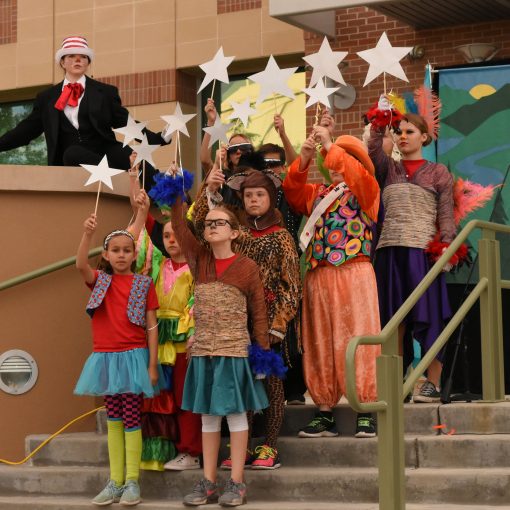Zig Ziegler once said, “Repetition is the mother of learning, the father of action, which makes it the architect of accomplishment.” Just like learning to read or learning to play a sport, the understanding of any new skill or concept requires a ton of practice…and then more practice…and then even more practice. Aside from mastering skills and grasping concepts, repetition helps students to increase their confidence, strengthen connections in their brain, and create meaningful personal connections that contribute to their overall sense of self and fulfillment. Not only that, but students get the opportunity to make abundant memories that they will cherish for the rest of their lives.
“Repetition is vital in many different ways. It’s a form of discipline. It inspires creating a routine. It solidifies a phrase in your head and actions into your body. It’s also a brilliant tool when it comes to comedy.”
Noah Moody, TVCT Artist Educator
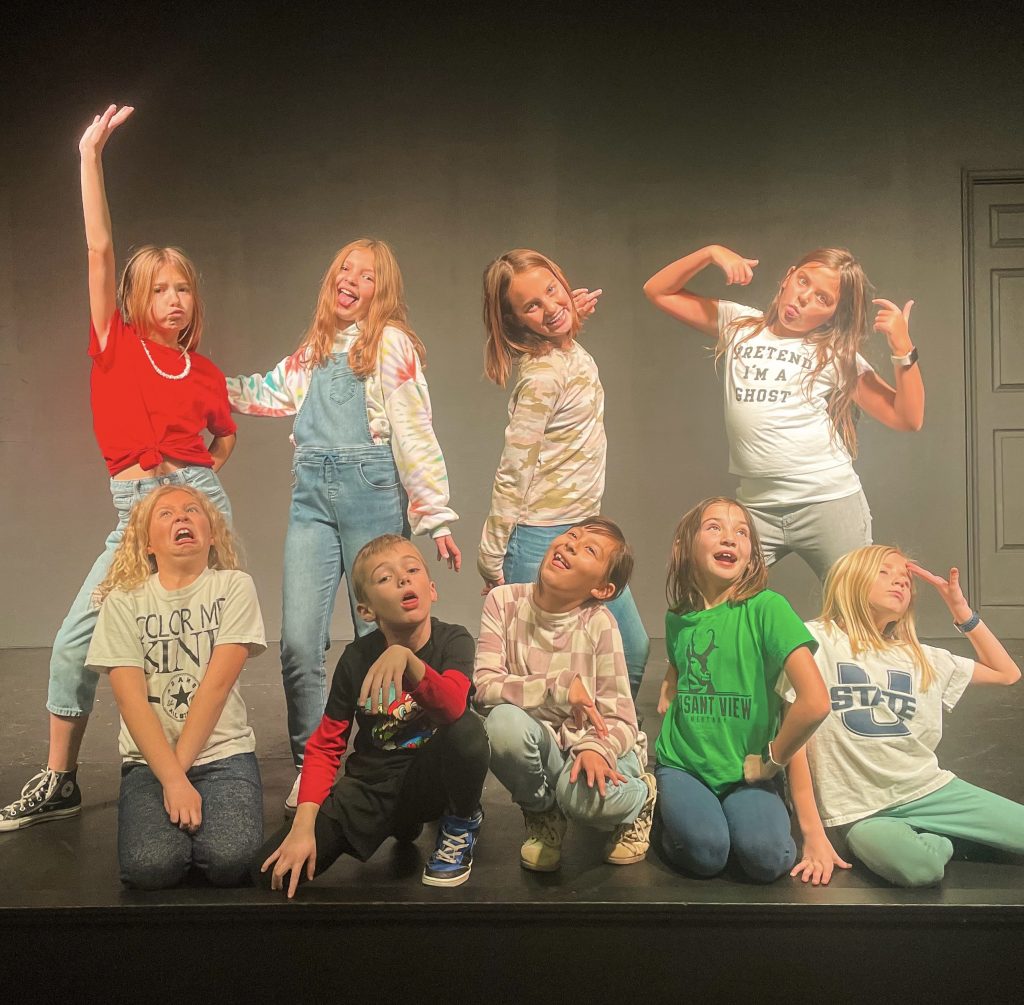
Where to start?
Treasure Valley Children’s Theater (TVCT) provides year-round educational programming for young people interested in theater. We are often asked “Where should we start?” We encourage most families to start at the very beginning (a very good plaaaaace to staaaaaart). We offer multiple beginner level classes every semester, which provide a perfect opportunity for curious kids to learn basic concepts and explore the world of theater with new friends.
“Often times in our beginning or intro classes we will have students that just aren’t quite sure that theater is their thing. Week 1 can be scary and overwhelming and it takes time to push away those insecure thoughts and “What if I look silly?” Sometimes there are repeat kids that seem to be having fun, know all the games and warm-ups and that can make newbies feel unsure of their role. Building confidence is a huge reason why we keep routines and repeat activities. We hope that as the session progresses, students begin to become more familiar and confident. We repeat and build and then review. Like any new skill, it’s a process. Our core values teach us that learning means making mistakes and when you accept that learning is a process, and just keep building up that foundation, you’ll find your own personal level of excellence.”
Allison Terenzio, TVCT Artist Educator
Not a beginner?
Of course, not every student is at the beginner level, so we also offer intermediate level classes, where students can continue to practice their skills and have fun, but at a slightly more advanced level. Students learn more advanced skills and concepts, engage with more challenging material, and work with students who are either older or more experienced. The concept of mixed age groups and experience levels has tremendous educational benefits, but that’s another topic for another time (stay tuned for future blog posts).
“I love the ownership of the values, goals, warm-up exercises that I see from students who are taking the same class again. Since classes are in ten and twelve week segments, students can’t possibly learn or master everything at that level in such a short time period. Instead of thinking about it as retaking a class, I like to think of it as continuing at that level. I had a student recently who the first time she took the introductory class had a hard time making it through the whole hour and would often ask how much time was left. When she was recently in the class, I noticed that she had matured and was no longer asking about the time. More importantly, I noticed that when we would do warm-ups or activities that she was familiar with from the last class, she would stand a little taller and even felt comfortable leading the class sometimes. I love the confidence that comes in the familiar and in repetition. While we use different materials- songs and scripts- in classes, there is a lot to be said for strengthening the mastery of warm-ups, telling the story, using the body, gaining commitment, and showing respect.”
Melissa Hadden, TVCT Artist Educator
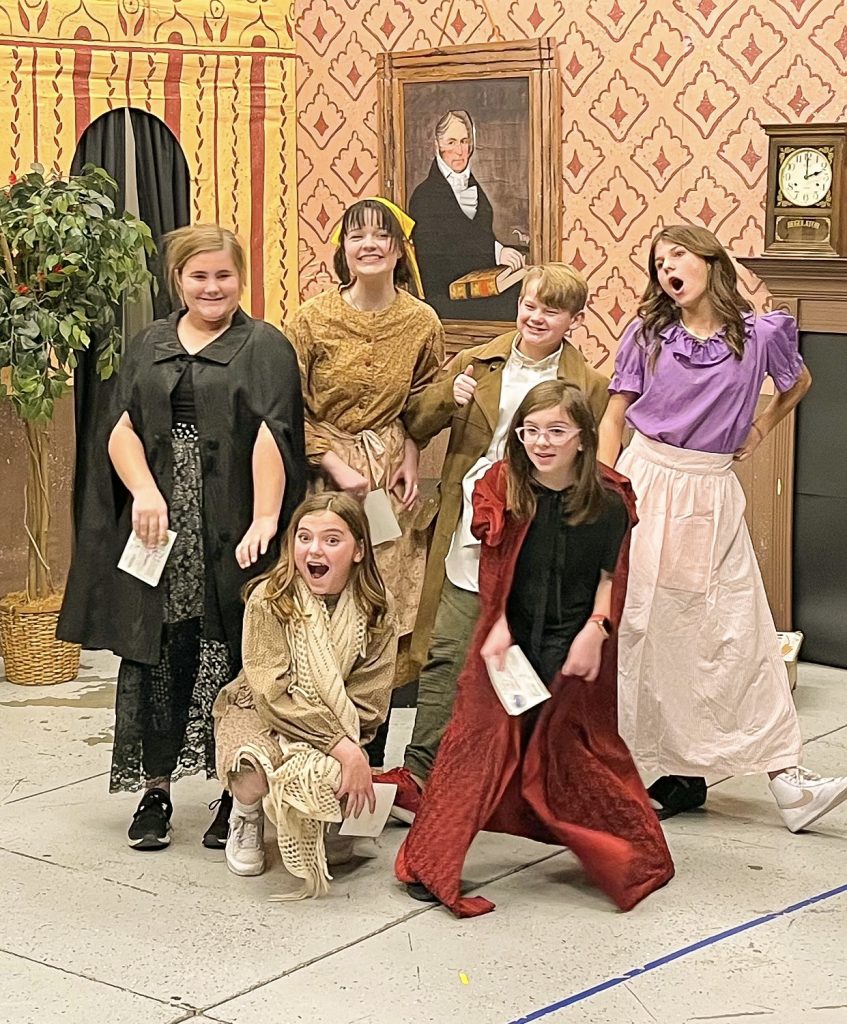
Ready to level up?
We also offer advanced level training programs in the form of our Youth Ambassador and Performance programs, but we continue to encourage our advanced students to go back to the basics. Again, repetition is key!
Students seriously engaged in their theater training know why we continue to revisit lessons and skills, but parents don’t always understand. We often get questions such as, “My child has taken all three levels of the Musical Theater classes, so what’s next?” Or, “My child already took an Intermediate Acting class and she loved it, but would it be beneficial for her to take it again?”
We recommend that a student repeat a class; educators and philosophers from all over the world have studied the concept of repetition and its valuable role in learning. Aristotle once said that “it is frequent repetition that produces a natural tendency.” This is especially prevalent in theater education because we want our students to become so acquainted with what they are learning that it becomes second nature. Repetition is the key that allows their skills to transition from the conscious to the subconscious, resulting in more authentic and advanced acting skills. The more familiar and comfortable students become, the less they need to think consciously about what they are doing. This frees up space in their brains to grasp new concepts or become more advanced with their abilities.
“I like to equate theater skills – especially improv ones which I specialize in – to learning to juggle. Every time you try to add a new skill, you may very well find you drop another skill while you are working on it. You might know how to create great scene work, but it might be something you struggle to keep up with while you are focusing on making stronger character choices. By repeatedly practicing those skills, listening to coaching, and being self-aware of areas you need reinforcement you will eventually find you can juggle both with ease and consider adding in another skill. But it takes repetitive practice to get there.“
Manda Hardin, TVCT Artist Educator
Are you ready to begin, repeat, and/or level up your theater training with Treasure Valley Children’s Theater? Visit our website to see a full list of classes, camps and workshops. Enrollment opens December for winter/spring session, April/May for summer session, and August for Fall. If you have questions about our programs or which class would be the best fit for your student, please email allison@treasurevalleychildrenstheater.com or message us on Facebook or Instagram.
“I’ve experienced the value of repetition as both a student and as an educator. In college, sometimes it took weeks, months, or even years of practicing the same skill before I was able to fully grasp the concept. Even when I thought I had already mastered a skill, it wasn’t until much later down the road after continuing my work with that skill that I realized how much room I actually had to grow. In my classes at TVCT, one of my favorite things to witness is when a student has that “aha!” moment where somehow, something clicks in their brain that for whatever reason hasn’t clicked until that very moment. It’s so fun to see how these small realizations can lead to a whole new understanding and appreciation of a concept.”
Aubrey Schultz, TVCT Artist Educator
